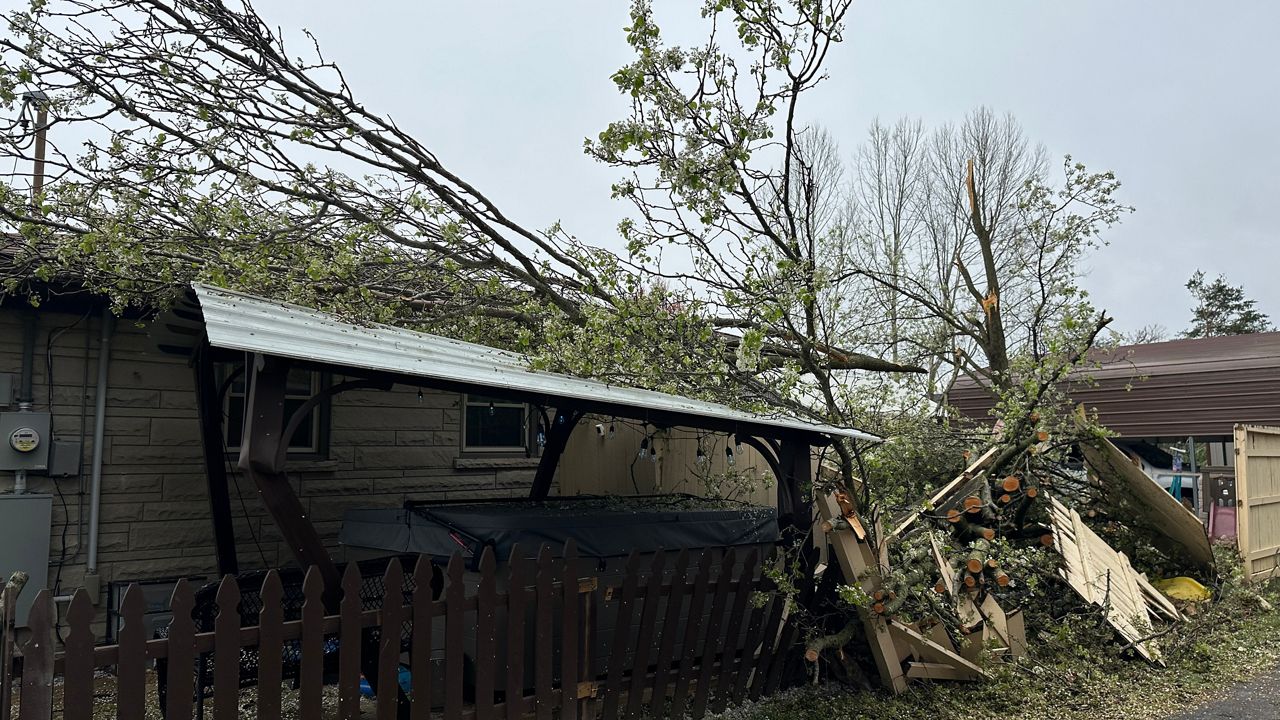LOUISVILLE, Ky. — Gov. Andy Beshear, D-Ky, vetoed Senate Bill 89, citing concerns over water protections; however, the State Senate and House overrode Beshear’s veto on Thursday.
Martin County resident Madison Mooney said she's disappointed lawmakers passed the bill, which redefines what are considered waters of the Commonwealth.
“This is just … it's just devastating,” Mooney said.
Beshear released a message when he vetoed the bill on Tuesday.
“Kentuckians deserve a government that protects one of the Commonwealth’s most abundant natural resources,” reads part of Beshear’s veto message. “Failing to protect all water sources in Kentucky will result in pollution, sickness, and more dangerous flooding.”
The Kentucky Waterways Alliance opposes SB 89. The organization advocates for the state’s waterways to be protected.
“There are a series of concerns with SB 89, both as it was written, as it is amended, now as it was passed,” said Michael Washburn, executive director of the Kentucky Waterways Alliance. “The one that we felt was most urgent was the removal of groundwater from permitting and pollution control protections throughout the Commonwealth.”
Washburn said more than three million Kentuckians get their drinking water from groundwater.
Kentucky Senate Republicans released a rebuttal to Beshear’s veto.
“Contrary to the governor’s claim, SB 89 does not weaken water protections,” reads part of the rebuttal. “The bill maintains environmental safeguards while preventing overregulation that could harm key industries like Kentucky’s agriculture and energy sectors.”
“When it comes down to it, all of their arguments against both us and against the governor's veto are really based on what they think is their intention,” Washburn said in response to the Senate's rebuttal.
He said SB 89 will likely affect rural communities the hardest and areas such as Martin County, where residents get their water from wells, springs and the Tug Fork River. The county already has higher water bills compared to most.
“It costs a lot of money to treat your water, especially your drinking water and infrastructure," Mooney said. “It costs a lot of money to treat your water, especially your drinking water and infrastructure," Mooney said. "The more pollution that is in our rivers and our streams and waterways, the more pollution that's going to end up within our reservoir — the Crum Reservoir — the more it's going to cost our water operators to treat this water and it's going to cost more to the consumer."
Mooney said she doesn't think lawmakers realize how the law could hurt local tourism and economic development as well.
“When it comes to the House and Senate, it's just a gap of knowledge of understanding their community and its full value,” Mooney said. “They normally speak with the fiscal court, they normally speak with the judge and the deputy judge and the magistrates and the city council and the mayors, which is an important part of our community, absolutely, but there's more to the community outside of our judge and outside of our mayors.”
Mooney added she hopes state legislators will open up more lines of communication with organizations and constituents in their districts when considering future bills.












